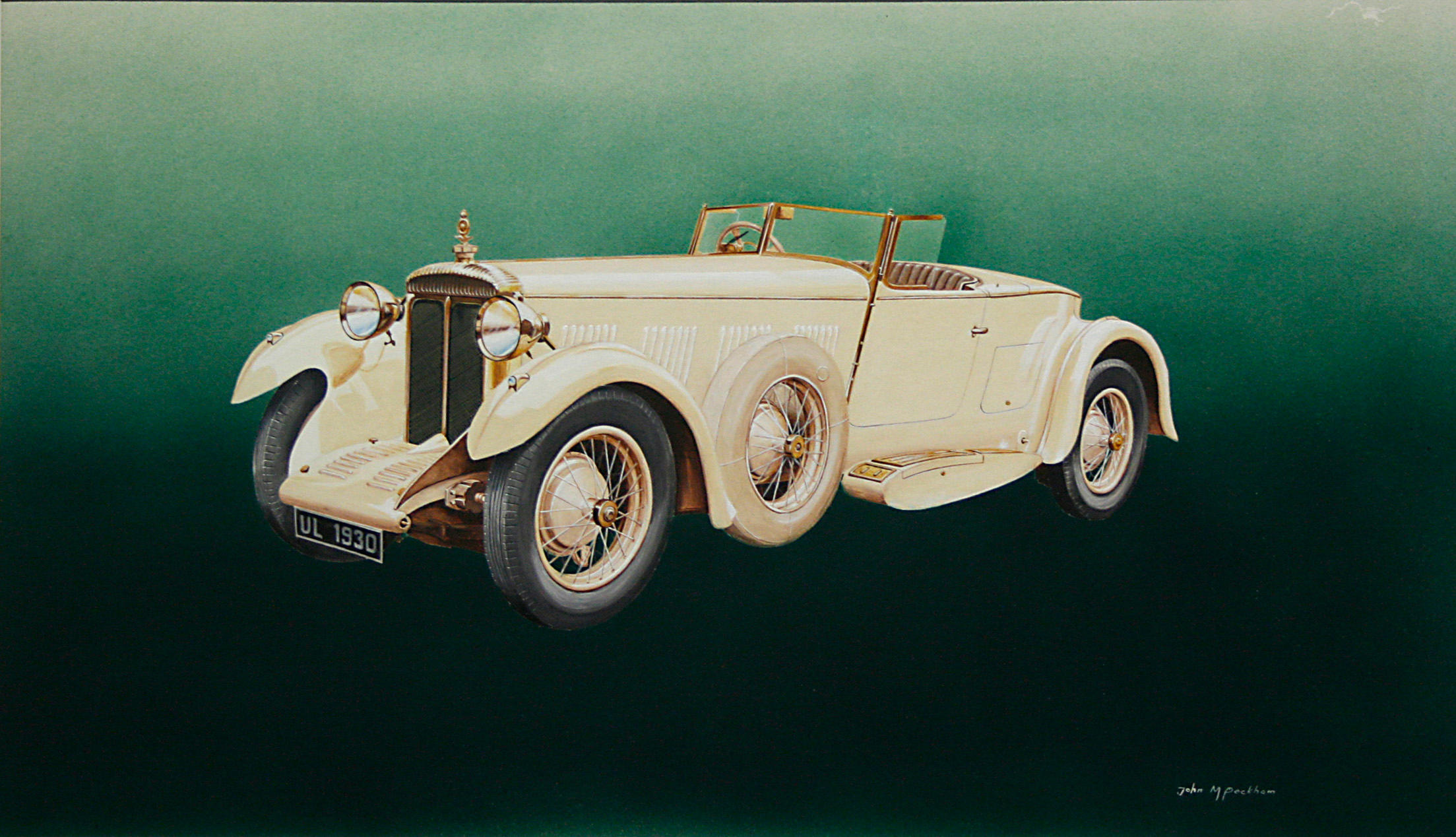As the 1920s gave way to the ‘30s, Chevrolet was on an expansionist kick. Not only were technical advances arriving regularly, the cars had increasingly grandiose names. The 1927 models had been designated “Capitol;” for 1928 this grew to “National.” A new six-cylinder car for 1929 was dubbed “International,” and for 1930, in a famous flourish, the Series AD Chevrolet became “Universal.” The period was good for Chevrolet. Although long a distant second to Ford in the sales race, Chevy steadily gained ground through 1926. Then in 1927, as Ford finally ceased production of the increasingly antique Model T, Chevy surged ahead, its advanced specification (overhead valves, selective gear transmission, steel disc wheels) compounding the temporary lack of competition. Chevrolet grew four inches in 1928 and received four-wheel brakes, remaining in first place as Ford’s Model A ramped up production. New, full-crown fenders were featured, and larger bullet-shaped headlamps better lit the road. The Fisher VV (Vision and Ventilation) windshield cranked out at the bottom, and standard equipment included a vacuum wiper, inside rear-view mirror, stop light, parking lights and a gas gauge. Bumpers, however, were still optional. A very presentable older restoration, this 1928 Chevrolet National two-door Coach looks good in deep green paint. The interior is tastefully done in green cloth. Although the restoration dates from the early 1980s, the car has been well cared for, and runs as well as it looks. The two-door Coach was the most popular body style for 1928, the nearly 347,000 built comprising 30 percent of all Chevrolet production. Its gentle style and sophisticated overhead valve engine made it serious competition for Ford’s Model A. Although Ford regained the lead in 1929 and ’30, by 1931 Chevy was the again the market leader. It would seldom relinquish the title during the rest of the 20th Century.
As the 1920s gave way to the ‘30s, Chevrolet was on an expansionist kick. Not only were technical advances arriving regularly, the cars had increasingly grandiose names. The 1927 models had been designated “Capitol;” for 1928 this grew to “National.” A new six-cylinder car for 1929 was dubbed “International,” and for 1930, in a famous flourish, the Series AD Chevrolet became “Universal.” The period was good for Chevrolet. Although long a distant second to Ford in the sales race, Chevy steadily gained ground through 1926. Then in 1927, as Ford finally ceased production of the increasingly antique Model T, Chevy surged ahead, its advanced specification (overhead valves, selective gear transmission, steel disc wheels) compounding the temporary lack of competition. Chevrolet grew four inches in 1928 and received four-wheel brakes, remaining in first place as Ford’s Model A ramped up production. New, full-crown fenders were featured, and larger bullet-shaped headlamps better lit the road. The Fisher VV (Vision and Ventilation) windshield cranked out at the bottom, and standard equipment included a vacuum wiper, inside rear-view mirror, stop light, parking lights and a gas gauge. Bumpers, however, were still optional. A very presentable older restoration, this 1928 Chevrolet National two-door Coach looks good in deep green paint. The interior is tastefully done in green cloth. Although the restoration dates from the early 1980s, the car has been well cared for, and runs as well as it looks. The two-door Coach was the most popular body style for 1928, the nearly 347,000 built comprising 30 percent of all Chevrolet production. Its gentle style and sophisticated overhead valve engine made it serious competition for Ford’s Model A. Although Ford regained the lead in 1929 and ’30, by 1931 Chevy was the again the market leader. It would seldom relinquish the title during the rest of the 20th Century.















Testen Sie LotSearch und seine Premium-Features 7 Tage - ohne Kosten!
Lassen Sie sich automatisch über neue Objekte in kommenden Auktionen benachrichtigen.
Suchauftrag anlegen